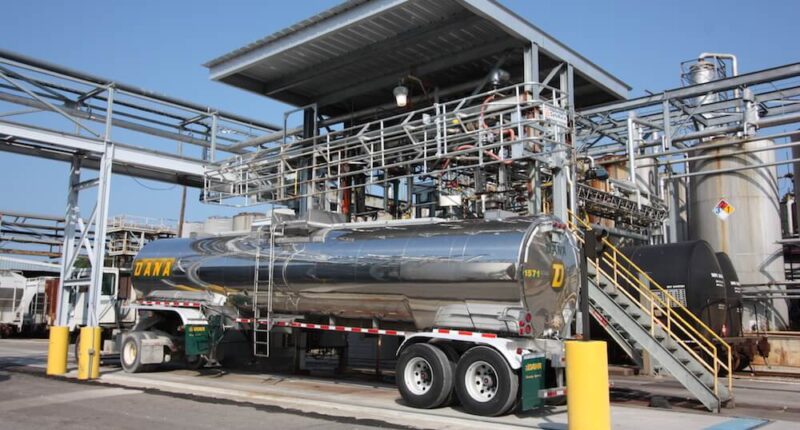The intervention of the Ministry of Finance and the Ghana Revenue Authority in the downstream sector of the petroleum and gas industry in Ghana, has yielded over GH1 billion in revenue to the govt of Ghana from May 2020 to March this year.
In 10 months of the introduction of the intervention by way of a revenue assurance operation, conducted at 16 of Ghana’s 20 fuel and gas depots around the country, GHC 1,072,424,787.40 was recorded as revenue in the lifting of petroleum products in the country.
This was revealed at a press briefing organised by Strategic Mobilisation Ltd, a Ghanaian owned company to throw light on the Ministry of Finance mandated operations, which include Transactions Price Audit and Assurance Services, External Price Verification Services for the Customs Division of Ghana Revenue Authority (GRA), and Downstream Petroleum Measurement Audit to aid reconciliation and revenue enhancement for GRA.
The company uses its Electronic Metering and Monitoring system installed at the fuel and gas depots, to measure the volumes received and lifted by the bulk storage companies operating in the country.
Former Controller and Accountant-General, Christian Tetteh Sottie, who is the Chief executive officer of SML, disclosed this to the media saying the system, commissioned in June 2020, validates and assures the quantity of petroleum products lifted from the various depots and sites across the country in real time, emphasizing that the revenue has increased tremendously since then.
BYTE
He added that this pattern can be attributed to effective monitoring by the introduction of the Electronic Monitoring system by SML and the vigilance of the GRA Customs officers.
Apart from the July 2018, 2019 and 2020 comparison which showed a marginal increase, the other periods have shown significant increases as compared with the previous years’ performances. June 2018 compared with 2019 showed an increase of 4.5% whilst June 2019 compared with June 2020 showed a significant increase of 25%.
Similarly, September 2018 compared with 2019 showed an increase of 12.1% whilst September 2019 compared with September 2020 showed an increase of 28%.
He said it is noteworthy that during the time when some industries are either shut-down or working with limited capacity and with borders being closed due to the covid-19 pandemic, there was not full movement of vehicles and also fewer persons travelling to funerals, the use of petroleum products has rather gone up instead of otherwise.
The former with all these situations, it is very clear that monitoring is what has caused the increase.
He said initially some of the players were disputing the figures by SML but now the evidence is empirical to avoid any doubts.
It is believed that the leakages in this sector is due to diversion of petroleum products for re-export back to the domestic market and also under-declaration of the volumes lifted for the domestic market.
The authorities have been grappling with this problem over this period because of the inadequate knowledge by the GRA officers to appreciate volume measurements, they therefore rely on third parties (depots) for information on the volumes.
It will be recalled that in June last year, Finance Minister, Ken Ofori-Atta said the NPA, Ghana Revenue Authority (GRA) and the depots’ independent reconciliation of reported sales of diesel and petrol for 2016 to 2018 showed differing figures, which prompted the authorities to mandate SML , to provide revenue assurance services to curtail the leakages.
By: Isaac Clottey





